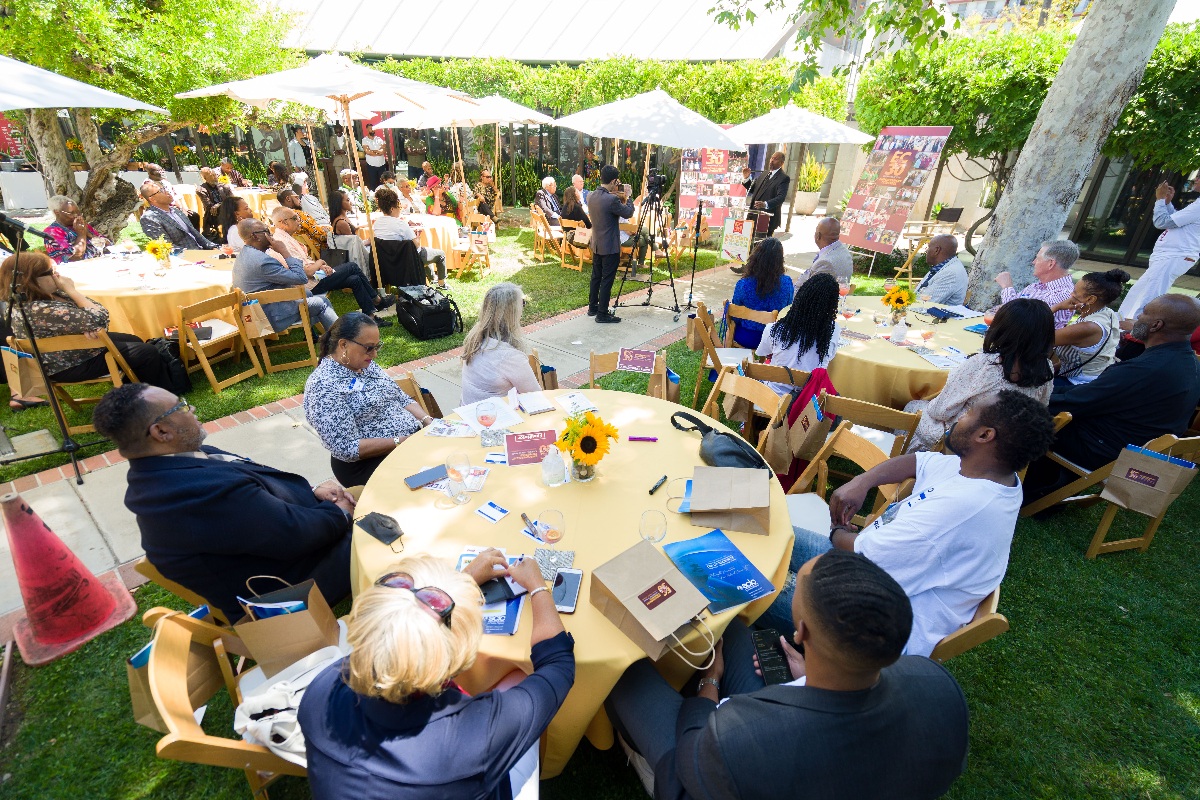MRT on Point
Making Juneteenth More Meaningful
Originally featured in the June 7, 2023 edition of the Praxis newsletter
By Mark Ridley-Thomas Ph.D.
The fast approaching recognition of another annual Juneteenth – also known by other names such as Liberation Day, Jubilee Day, and more – offers us an opportunity to think about its connection to homelessness.
As Juneteenth signifies freedom from the ugly chapter in American history where Black people were brutally enslaved and literally reduced to chattel by white slave owners and overseers. The Civil War had ended and the Emancipation Proclamation had been issued to signal a new beginning for former slaves, even though some of them got that news as long as two years later. The news nonetheless occasioned celebration of Freedom Day on June 19, 1865.
It is often uncomfortable, but equally necessary to confront the reality of the legacy of racism spawned in slavery, and its persistent demeaning of Black life ever since. Nowhere is that more clear than when coming to grips with this nation’s homelessness crisis – Los Angeles being a textbook example.
I can hardly believe it was as far back as 30 years ago this month that the late Los Angeles Times Reporter Andrea Ford, flagged the plight of poverty-stricken Angelenos. While it is not breaking news that homelessness disproportionately affects Blacks in the LA region, it is noteworthy that the fight against the legacy of slavery and institutional forms of racism in health, education, housing, and more, must be renewed in the form of sustained and multi-pronged anti-racism and anti-poverty work. Therefore, anti-Black racism as it informs long-standing Black trauma cannot be allowed to be trivialized, and much less minimized, in our celebration of Juneteenth.
“Pathologizing” Black life should never be the pursuit and must be avoided at all costs. However, in our celebration of Juneteenth, we must consider the following:
- The historic work of Los Angeles Homeless Services Authority (LAHSA) on Black people experiencing homelessness;
- The persistent work of the LA Civil + Human Rights and Equity Department on anti-Black racism; and
- The informative report on the State of Black LA County commissioned by the Anti-Racism, Diversity, and Inclusion (ARDI) Initiative.
In each instance, the focus on the stubborn legacy of structural racism, as it relates to the undeniably disproportionate impacts of homelessness on Black people, must be elevated. If indeed we want to make the celebration of Juneteenth meaningful, we must further educate ourselves, deepen our resolve, and authenticate our witness as we seek to address the most daunting challenge facing Los Angeles. In other words, Juneteenth ain’t just about jubilee, it’s about justice “for the least of these.”



-300x168.png)